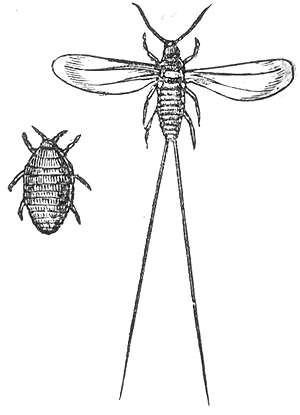Shawnee_b
Platinum Member
By Rabbi Yair Hoffman
Tropicana is the world’s leading producer of branded fruit juices. In all probability, this is because of its remarkable fresh, orangey taste. They get this taste through a unique and remarkable process–they actually squeeze oil out of the peel, centrifuge the oil to separate it from the surrounding water, and add some of the oil to the juice while maintaining careful quality control. Among the oils that are separated from the peels are essential oils, limonene oils, and orange oils. The juice is then flash pasteurized and ultimately packaged in special containers that retain the flavor and protect the juice from oxygen, light, and moisture.
The plus side of adding the oil from the peel is the remarkable “freshly squeezed” taste found in the product. The downside, it seems, is that in the process of adding the oils of the peel, something else is also introduced into the juice.
Scale Bugs
Florida oranges quite often have scales on the outer peel. There are two types of these bugs–the armored and the soft-scale variety. There are five varieties of armored scales–the purple scale, the citrus snow scale, the Florida red scale, the Glover’s scale, and the chaff scale. There are three types of soft scales that affect Florida oranges–the Caribbean black scale, the brown soft scale, and the Florida wax scale.
This author decided to test some four containers of Tropicana Pure Premium orange juice. The method of testing was to pour each cup through a Fischer Scientific 62-micron nylon mesh and then to place the nylon mesh over a light box.
The testing revealed that each cup of Tropicana Pure Premium had on average of between three and four scale bug parts in the juice that are visible to the naked eye on a light box. This was verified through the use of a USB microscope. In experiments conducted this week, about 1 in 20 cups actually revealed a fully intact scale bug. This is after examining four containers purchased in three locations, but admittedly within one week of each other.

 www.5tjt.com
www.5tjt.com
Read the ingredients, look up Cochineal
Tropicana is the world’s leading producer of branded fruit juices. In all probability, this is because of its remarkable fresh, orangey taste. They get this taste through a unique and remarkable process–they actually squeeze oil out of the peel, centrifuge the oil to separate it from the surrounding water, and add some of the oil to the juice while maintaining careful quality control. Among the oils that are separated from the peels are essential oils, limonene oils, and orange oils. The juice is then flash pasteurized and ultimately packaged in special containers that retain the flavor and protect the juice from oxygen, light, and moisture.
The plus side of adding the oil from the peel is the remarkable “freshly squeezed” taste found in the product. The downside, it seems, is that in the process of adding the oils of the peel, something else is also introduced into the juice.
Scale Bugs
Florida oranges quite often have scales on the outer peel. There are two types of these bugs–the armored and the soft-scale variety. There are five varieties of armored scales–the purple scale, the citrus snow scale, the Florida red scale, the Glover’s scale, and the chaff scale. There are three types of soft scales that affect Florida oranges–the Caribbean black scale, the brown soft scale, and the Florida wax scale.
This author decided to test some four containers of Tropicana Pure Premium orange juice. The method of testing was to pour each cup through a Fischer Scientific 62-micron nylon mesh and then to place the nylon mesh over a light box.
The testing revealed that each cup of Tropicana Pure Premium had on average of between three and four scale bug parts in the juice that are visible to the naked eye on a light box. This was verified through the use of a USB microscope. In experiments conducted this week, about 1 in 20 cups actually revealed a fully intact scale bug. This is after examining four containers purchased in three locations, but admittedly within one week of each other.

Are The Bugs in Tropicana Orange Juice Kosher? - The 5 Towns Jewish Times
By Rabbi Yair Hoffman Tropicana is the world’s leading producer of branded fruit juices. In all probability, this is because of its remarkable fresh, orangey taste. They get this taste through a unique and remarkable process–they actually squeeze oil out of the peel, centrifuge the oil to...
Read the ingredients, look up Cochineal



